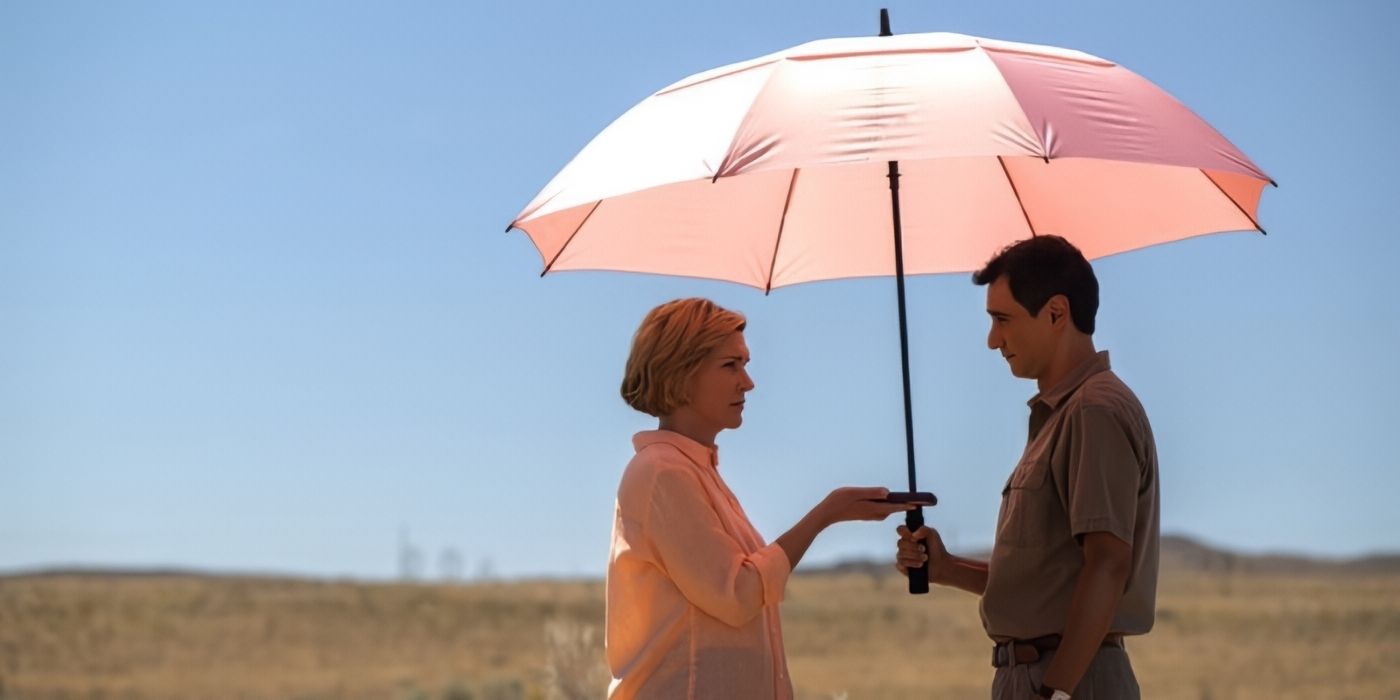Pluribus Mania: Rhea Seehorn's Carol Sturka Saga Expands with Book, Easter Eggs, and Episode Recaps

Vince Gilligan's new Apple TV drama, "Pluribus," has quickly garnered critical acclaim and online attention, captivating audiences with its fascinating premise: humanity assimilated into a collective consciousness, often referred to as "the pluribus" or "The Joining." The series delves into a dystopian (or potentially utopian) future where all but a handful of individuals have been absorbed into a hive mind, a phenomenon caused by an RNA recipe from outer space. Gilligan's meticulous attention to detail, a hallmark of his previous successes like "Breaking Bad" and "Better Call Saul," is evident in every scene, creating a visually rich and narratively profound experience.
The story centers on Carol (Rhea Seehorn), described as "the most miserable person on Earth," who inexplicably remains immune to "The Joining." Her journey is one of resistance against the omnipresent collective consciousness that seeks to "fix" her and bring her into its fold. Episode 3, titled "I Would Do Anything," explores the extreme lengths the pluribus will go to ensure Carol's happiness, even if it means granting her a hand grenade or, theoretically, an atom bomb. This installment opens with a flashback seven years before "The Joining," depicting Carol and her wife Helen (Miriam Shor) at an ice hotel in Norway. This scene highlights Carol's inherent misery, contrasting with Helen's vacation spirit, a classic Gilligan cold open that offers deep insight into Carol's character.
In the present, Carol returns from Spain, where her attempt to form a pact with other English-speaking immune individuals to resist the pluribus failed. She learns of Manousos, a man in Paraguay who has largely avoided contact with the collective, and a terse phone call ensues. Carol is further unsettled when Zosia (Karolina Wydra), her hive mind chaperon, reveals details about a massage gun Helen had ordered for her, implying the pluribus has access to Helen's consciousness and memories. Disturbed, Carol demands that the pluribus forget everything about Helen, insisting, "Only I get to remember her."
The pluribus's attempts to please Carol escalate. When she expresses a desire for normalcy and the ability to shop for oak milk in a grocery store that has been gutted for resource consolidation, trucks and smiling members of the collective instantly appear to restock the store. Later, when Carol jokingly asks Zosia for a hand grenade, the pluribus takes her seriously. Zosia arrives at her doorstep with the explosive, explaining, "We thought you were probably being sarcastic, but we didn’t want to take the chance." Carol, testing their sincerity, pulls the pin, leading Zosia to throw the live grenade out the window, which explodes, setting Carol's car and yard on fire and causing Zosia to collapse. In the hospital, a representative of the hive mind confirms their commitment, assuring Carol they would provide her with another grenade, a bazooka, a tank, or even an atom bomb, explaining, "We would move heaven and earth to make you happy, Carol." Zosia reveals the collective has a "biological imperative" to convert Carol, comparing it to throwing a life preserver to someone drowning, suggesting Carol is drowning "but just doesn’t know it."
"Pluribus" subtly integrates elements that evoke Gilligan's past works. While the show is not set in the "Breaking Bad" universe, it shares a setting in Albuquerque, and characters like Carol are seen drinking McCallan whiskey, a brand associated with Howard in "Better Call Saul." A more chilling parallel appears in Episode 2 with the "Wayfarer" airline, the same fictional carrier involved in a catastrophic midair collision above Walter White's home in "Breaking Bad" Season 2. This Easter egg serves a deeper purpose than mere fan service, hinting at the immense and often unseen destruction caused by "The Joining." The initial assimilation resulted in hundreds of millions of casualties, and Zosia later reveals that over 800 million people died, around 10% of Earth's population. Furthermore, Carol's anger has had devastating unintended consequences, causing seizures in the Others and leading to the deaths of over eleven million people globally.
Gilligan's signature storytelling structure, characterized by a slow, out-of-context build-up to an explosive climax, is also evident in "Pluribus." Similar to the monochrome cold openings in "Breaking Bad" that hinted at the plane crash, "Pluribus" introduces elements like Zosia's drawn-out journey to meet Carol, only later revealing their full significance. These narrative devices underscore the underlying intentions and commitment of characters and reflect the "butterfly effect" of actions on a grand scale.
Adding another layer to Carol's character is the meta-fictional release of an excerpt from her fictional novel, "Bloodsong of Wycaro," available on Apple Books. This novel is part of her "Winds of Wycaro" romantasy series, which Carol, despite its bestseller status, loathes. The excerpt describes Captain Lucasia's journey through treacherous sands, haunted by memories of Raban, mirroring Carol's own internal struggles and her profound sense of misery. This promotional stunt by Apple mirrors a similar release for the self-help book from their series "Severance," further blurring the lines between fiction and reality within the show's universe.
"Pluribus" marks Gilligan's first major project after "Better Call Saul" concluded in 2022. He has expressed a deliberate choice to move away from established IP, striving to prove his versatility and create new, original stories for contemporary audiences, rather than relying on reboots or continuations. This ambition is clearly reflected in the complex and thought-provoking narrative of "Pluribus," which explores profound questions about individuality, happiness, and the true cost of collective consciousness.
You may also like...
When Sacred Calendars Align: What a Rare Religious Overlap Can Teach Us

As Lent, Ramadan, and the Lunar calendar converge in February 2026, this short piece explores religious tolerance, commu...
Arsenal Under Fire: Arteta Defiantly Rejects 'Bottlers' Label Amid Title Race Nerves!

Mikel Arteta vehemently denies accusations of Arsenal being "bottlers" following a stumble against Wolves, which handed ...
Sensational Transfer Buzz: Casemiro Linked with Messi or Ronaldo Reunion Post-Man Utd Exit!

The latest transfer window sees major shifts as Manchester United's Casemiro draws interest from Inter Miami and Al Nass...
WBD Deal Heats Up: Netflix Co-CEO Fights for Takeover Amid DOJ Approval Claims!

Netflix co-CEO Ted Sarandos is vigorously advocating for the company's $83 billion acquisition of Warner Bros. Discovery...
KPop Demon Hunters' Stars and Songwriters Celebrate Lunar New Year Success!

Brooks Brothers and Gold House celebrated Lunar New Year with a celebrity-filled dinner in Beverly Hills, featuring rema...
Life-Saving Breakthrough: New US-Backed HIV Injection to Reach Thousands in Zimbabwe

The United States is backing a new twice-yearly HIV prevention injection, lenacapavir (LEN), for 271,000 people in Zimba...
OpenAI's Moral Crossroads: Nearly Tipped Off Police About School Shooter Threat Months Ago
ChatGPT-maker OpenAI disclosed it had identified Jesse Van Rootselaar's account for violent activities last year, prior ...
MTN Nigeria's Market Soars: Stock Hits Record High Post $6.2B Deal

MTN Nigeria's shares surged to a record high following MTN Group's $6.2 billion acquisition of IHS Towers. This strategi...





